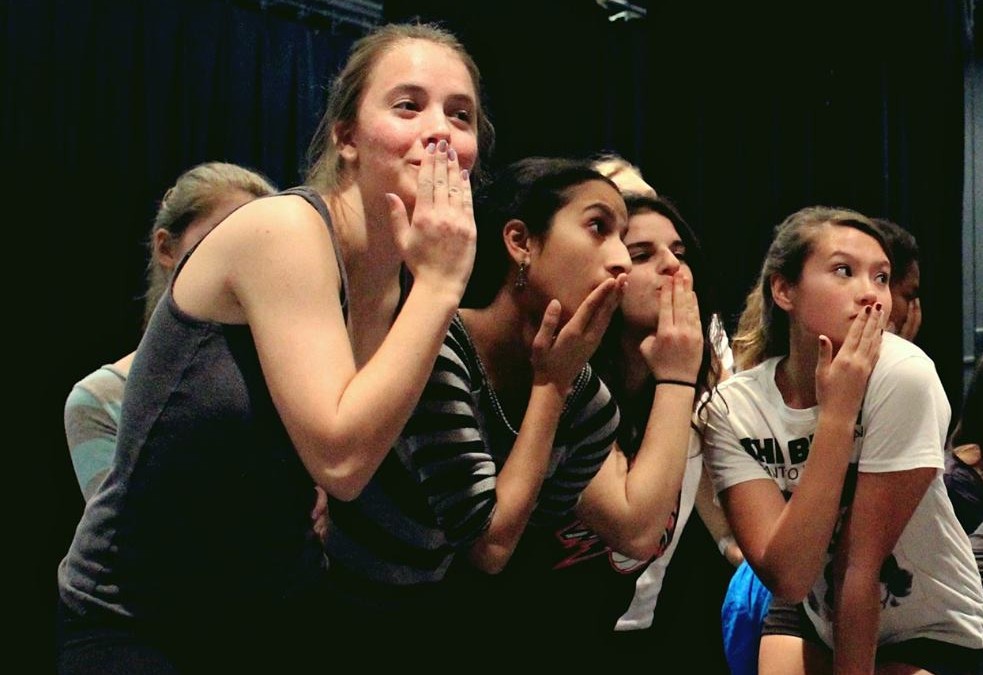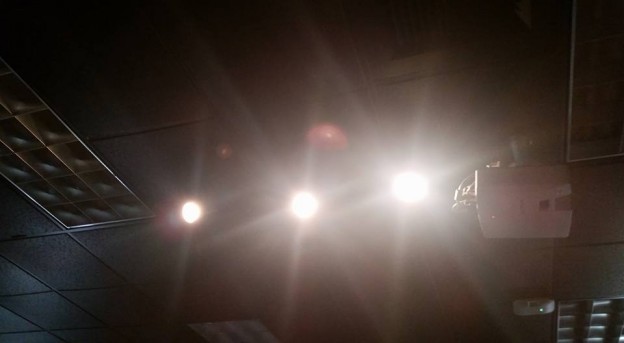I lost my classroom a couple of weeks ago.
I didn’t lose it because my program’s needs were misunderstood, or because my program is being cut. I didn’t lose it to make room for a new sports program, the way it would have happened on television. I am supported to the extent possible where I work. The powers that be were very sorry to break the news to me.
I lost it because the building it is in is scheduled for demolition in September in order to build a larger one with more classrooms. I wasn’t alone in the loss. About 13 teachers at my school had the same thing happen to them, many of them dealing with teaching situations and populations equally as challenging as that of a drama department’s rehearsal space and storage for costumes and props. Robotics. Modern language. Special Education. Only some of these programs will be returning to the new building.
The new classroom is close to the theatre, which I can’t teach in or really leave shows in progress in due to various factors irrelevant to this post. And it’s not a theatre classroom. It’s not big enough to do everything the other room did. And that scares me. I know there are supposedly rapidly developing plans to make us a better space. And yet.
I built so much in room 605.
It had been, for a long time, the journalism room on campus. It had once held the huge tables students did to do layout before computers made that obsolete. It was large, had two entrances, and the school helped us paint it black, hang curtains, put up track lighting. The room could go mostly dark and create a little womblike space for students to perform in. The lights could dim, and students could practice very basic tech theatre by working cues. It was very, very wonderful. An ideal space for novice students to grow in safety, and for more expert students to hone their craft.
It was surrounded by trees and benches and open spaces where students could run projects outside the room, then gather to perform. There were no desks, so 40 students could make a circle. It was big enough that we could keep things we had racked for current shows behind the curtains if we had to, because we have no secure tech area. There is no safe place to leave a show in progress, and that’s a thing you don’t truly get unless you teach drama.
This room held a keyboard. It was big enough to hold rehearsals for mainstage shows in, just. It made the difficult logistics of running a huge theatre department in a school where the theatre does not belong to the theatre department bearable.
The room was big enough to hold two couches for students that needed to sleep, or just be by themselves for a moment, or do homework. This was a godsend during long tech weeks when students are struggling with the demands of being performers and technicians at a school that still expects academic business as usual.
It was old and the wiring was old and a squirrel lived in the roof sometimes. The AC would die when it was hot and the heat sometimes would go out in the winter. It was dusty and sometimes we found cockroaches or spiders. I loved it anyway.The new, temporary space is ok. I don’t hate it. I don’t know if it will work. Not knowing if it will work is really scary.
I miss my old room. And I’m going to miss it more in August.
I’ve never met a teacher who didn’t have an opinion about their classroom. You get a bunch of teachers stuck on campus, building programs they’re proud of and living in these spaces, and place becomes currency. Teaching is personal and classrooms are personal spaces. Space envy is real and it is huge. Like the moment when a person in business gets that “corner office”, the achievement of premium classroom space is a thing in teaching. Light, storage, proximity to the bathroom or the parking lot. Teachers have opinions about every single one of these issues. A good classroom can make a good year. Loss of space feels like loss of prestige and power, the same way it does in the business world.
Drama teachers are in a unique bind with regards to this, because as I’ve said before, our job is fundamentally impossible. Either we own the theatre space or we don’t, and each of these scenarios comes with its blessing or curse. Some of us are great at tech and thankfully have scene shops, others are acting teachers and thankfully don’t. Most of us are hybrids. Some of us enjoy expert status on campus, others must fight tooth and nail for every event, every piece of equipment, every uninterrupted rehearsal. Most of us fall somewhere in between.
It’s hard not to become attached to what we have- this is human nature. But If I’ve learned anything during the experience of losing my space, and bear in mind that this is a fresh wound- I have learned a few things.
Home for our students has to be where we are, wherever that is. I told my kids I was sad. I acknowledged that they were sad too. I welcomed them to come back after school got out to help move. Some did. It was as good as it could have been.
We have to plan for, accept, and build impermanence into our programs, because immobility and inflexibility are killers, as is complacency. Expect sunshine, but carry an umbrella. It may feel like your space, but it’s not, ultimately. You work at a school. Stay mobile.
There is no amount of advocacy, hard-headedness, or entitlement that will make facilities that are inadequate somehow adequate. The walls won’t change. We have to find space in our teaching practice to do that, even if that means kicking and screaming as professionally as we can. Or throwing things out. Things you thought everybody needed. Or throwing yourself out. As professionally as you can.
If you’re reading this, and things are amazing at your school site, be grateful. And be ready. I lost my classroom in the space of two weeks. If you’re hoping for something different or better to come along, I’m right there with you.
I still hold the keys to the theatre. There’s just a new key there now. Shiny, to a room I don’t yet understand.



